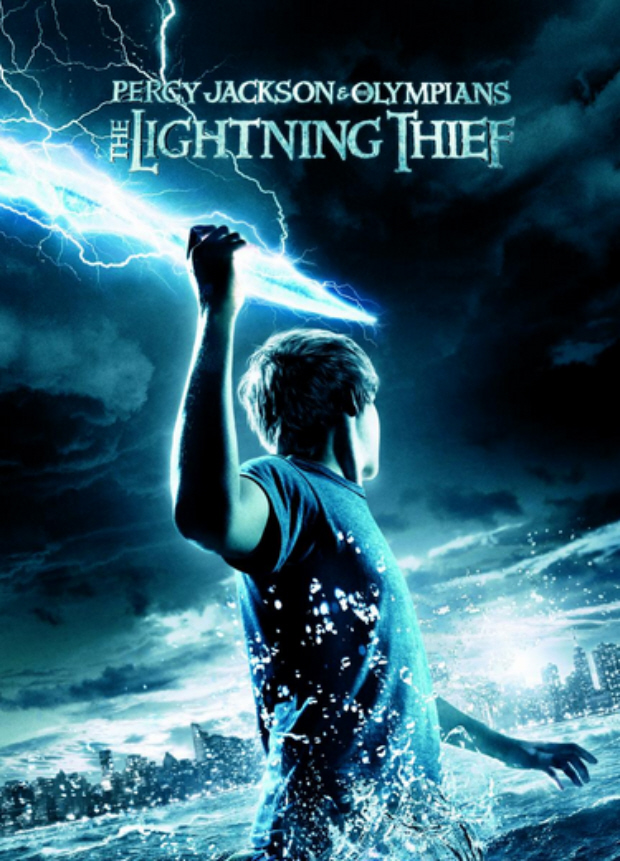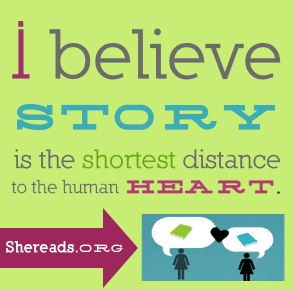So far, I’m really enjoying all the non-fiction reading I’m doing. At the same time, there are so many good YA fiction blogs that I’ve begun to crave some fiction myself! Which is why I decided to put off my Bookends post until today so yesterday I could finish reading the first Percy Jackson book, The Lightning Thief. I also finally got to reading my extra book from the 004′s, so that will be the other book I review today.
Non-Project Non-Fiction
 Small Pieces Loosely Joined: A Unified Theory Of The Web was as philosophical as it sounds. The view of the web presented here is very abstract, focusing on the way the web has (according to the author) caused people to re-define fundamental concepts such as space, time and togetherness. I found a lot of the evidence he offered in support of these views self-evident although I’m still not sure I agree with his assertion that we view time differently because of the internet. I do, however, agree with his final point which is that the internet in many ways allows people to interact in a more intuitive way than we can in the real world. I think the book would have been better had he focused more on this point throughout.
Small Pieces Loosely Joined: A Unified Theory Of The Web was as philosophical as it sounds. The view of the web presented here is very abstract, focusing on the way the web has (according to the author) caused people to re-define fundamental concepts such as space, time and togetherness. I found a lot of the evidence he offered in support of these views self-evident although I’m still not sure I agree with his assertion that we view time differently because of the internet. I do, however, agree with his final point which is that the internet in many ways allows people to interact in a more intuitive way than we can in the real world. I think the book would have been better had he focused more on this point throughout.
As with many more philosophical books, sometimes the author uses a lot of big words to say something which sounds very good until you analyze it and realize he hasn’t said much at all. For instance, in the first chapter the author summarizes the concepts he believes have been changed most by the web – self, space, time and knowledge. But I finished the chapter feeling that he had noted only the obvious changes in the concepts of self, knowledge, and space and that he hadn’t presented a convincing argument that our concept of time had changed at all. To be fair, this feeling that his suggestions are obvious could be because I grew up with the internet so many of the changes he suggest may already have become second nature for me.
Again probably because of my familiarity with the internet, I feel as though the author makes some of his observations with a child-like wonder. This can be enjoyable, a fun way for those of us immersed in an internet culture to step back and truly appreciate what an awesome invention it is. But it can also get old, as the author belabors a point which feels obvious. For example, the author focuses a lot on our concept of the web as something we travel through (“going” to websites, eg) even though the experience is in many ways similar to reading a book:
“So, is the Web spatial? Yes, that is the fact of our experiences of the Web. But if we think of Web space in terms of the measured space of the real world or as a universal grid work of uniform units – an even more abstract notion – we’ll go hopelessly wrong. In fact, the Web feels spatial because it is a linked assemblage of places - meaningful, significant spots, each one different.”
At the end of that paragraph I couldn’t help but think, of course the web isn’t really a space! But I don’t think it is hugely significant that we use physical travel as a metaphor for the way we use the internet.
However, the author’s main point, as I understand it, is that we interact more intuitively online than is possible in the real world. We choose who we interact with and interact with people based on shared interest and a desire to interact, instead of being constrained by geography. We interact whenever we want, leaving and entering and continuing conversations whenever we want. The internet places priority on who we show ourselves to be, judging us only by our actions, and prioritizing the mental over the physical – a priority the author claims we often mistakenly reverse in the real world by belittling our emotions and thoughts as “unreal”. Although a lot of the book seemed tangential to this point and I think a stronger argument could have been made, I did at the end agree with his main point. I very much enjoy the way the internet allows individuals to develop a persona representing their best qualities and to interact when and how they like with others. And it is certainly convenient to be able to find like-minded people so easily.
Finally, while the book has its flaws, I think the best description of the book would be as a beautiful ode to the internet. The author describes the features of the internet with often flowery praise, allowing those of us so complacent in our acceptance of the internet to take a step back and appreciate it for the technological and social wonder it is.
Current Fiction Reading
 The Lightning Thief is one of the few YA novels I’ve read lately that I felt was really worth the hype. The book was well-written, fast-paced and very enjoyable. The narration reminded me a little of the Septimus Heap series, although I had a hard time putting my finger on the reason. It isn’t quite as off-the-wall hilarious as the Septimus Heap books sometimes are, but there’s something about it… I think it may be that both books prevent some rather unbelievable events in a very matter-of-fact way. Whatever the reason, I really liked the narrative style in this book as well.
The Lightning Thief is one of the few YA novels I’ve read lately that I felt was really worth the hype. The book was well-written, fast-paced and very enjoyable. The narration reminded me a little of the Septimus Heap series, although I had a hard time putting my finger on the reason. It isn’t quite as off-the-wall hilarious as the Septimus Heap books sometimes are, but there’s something about it… I think it may be that both books prevent some rather unbelievable events in a very matter-of-fact way. Whatever the reason, I really liked the narrative style in this book as well.
I also really enjoyed the Greek mythology permeating the story. Ever since middle school, I’ve loved reading about Greek mythology and although no background in Greek mythology is necessary to read the book, it definitely made for a richer experience. As I’ve gotten older and have more fantasy reading in my background, I’ve started to really enjoy new takes on classic stories. They have the novelty of a new story while simultaneously having a pleasant familiarity. Reading this book reminded me of the feeling I had watching the Sword in the Stone episode of the new TV show Merlin
- sure it’s just one scene in the story but it’s a scene with all the weight of the King Arthur mythos behind it. This made it much more meaningful and moving.
Despite the use of Greek mythology, I thought the plot was pretty original. The young protagonist turns out to be someone special theme is of course as old a YA novels, but within that framework, this book had a new and interesting twist. There was always something new and exciting happening. In fact, I almost felt like we were running out of gods and monsters to meet in the next book! That said, I enjoyed the first book a lot and am about to go start the second one right now to find out ![]()
Summary
Small Pieces Loosely Joined: A Unified Theory Of The Web – 3 stars – very philosophical, a beautiful ode to the web. It makes a good point, but in a very round about way. The main draw here is the author’s ability to make you view the web as new and wonderful.
The Lightning Thief - 4 stars – a fun, action-packed book with all the richness of Greek mythology to enhance the experience,









Pingback: Katie’s #7 #CBR4 Review: Small Pieces Loosely Joined: A Unified Theory of the Web by David Weinberger « Cannonball Read IV
The Lightning Thief was definitely a great little book. I’ve also been tremendously interesting in Greek Mythology since a young age, and I’m glad this book exists for my future children.
Yeah, as I said in my review, it’s not necessary to know any Greek mythology, but I do think my enjoyment of Greek mythology made the book much better!
Pingback: Katie’s #8 #CBR4 Review: The Lightning Thief by Rick Riordan « Cannonball Read IV
I am so excited to find your site! What an interesting challenge you’ve set for yourself. I love nonfiction as well so I will definitely be checking in to see what great books you’re finding as you make your way through the nonfiction stacks! Good luck! Pam
Pam
Thanks Pam! I’m glad you commented because I’m excited to find your blog as well
I haven’t read The Lightning Thief, but I feel like I would really like it. I’ve always loved the Greek myths too.
I would definitely recommend it. I was rather slow getting my newest review up because I got so absorbed in the rest of the series! If you read it, I’d love to hear what you think about it
I think I would get a little lost in the Small Pieces book. Despite hosting the Dewey Decimal challenge, I’m still pretty new to non-fiction and mostly read narrative non-fiction.
I do love Percy Jackson, and I feel like having a pretty good familiarity with Greek mythology only added to my enjoyment. The great characters were what really kept me reading though!
It was definitely a complicated read, not my favorite!
I agree. The character development in the series is really well done